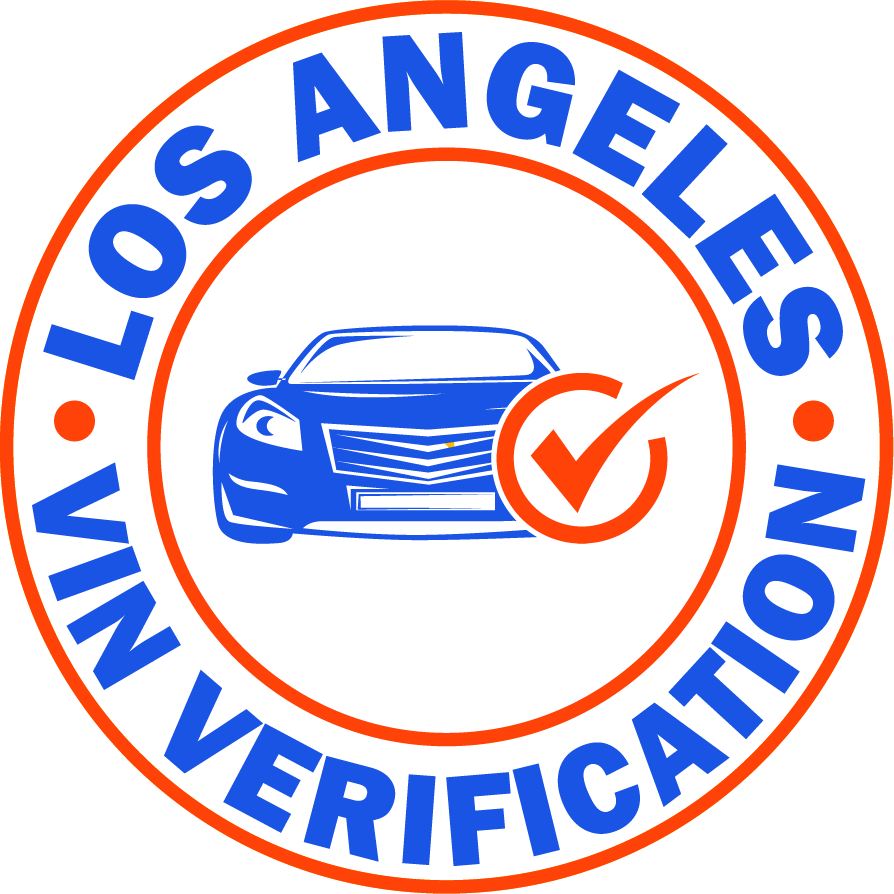In Los Angeles, the necessity of VIN verification for both new and used vehicles emerges as a pivotal mechanism to thwart automobile fraud and theft. This practice, mandated by the California DMV, demands meticulous scrutiny to align the vehicle's physical identification with its legal documentation. While the process appears straightforward—entailing a review of titles, bills of sale, and compliance labels—the underlying complexities and potential discrepancies pose significant challenges. For vehicle owners and potential buyers, understanding these intricacies is not only crucial for compliance but essential for safeguarding one's investment. What remains imperative is exploring how these verifications adapt to the evolving landscape of vehicle transactions in the city.
Understanding VIN Verification
VIN verification is a mandatory inspection process that ensures a vehicle's identity aligns with its documented title information, effectively safeguarding against theft and fraud. This procedure is crucial, particularly in the vibrant and mobile society of Southern California, where the freedom to move seamlessly hinges on the lawful registration of vehicles.
Administered by the California DMV, VIN verification is not only a preventive measure against illegal activities but also a gateway to validating the legitimacy of out-of-state vehicles seeking registration in the state.
During the physical inspection, the vehicle identification number (VIN) is scrutinized to confirm it matches the details on the title or registration card. This step is essential for integrating an out-of-state vehicle into California's vehicular ecosystem, ensuring it meets smog certification requirements and adheres to federal certification standards.
The process is thorough, examining the vehicle's year, make, model, and even the odometer reading, thereby reinforcing the integrity of the registration process.
For residents of Southern California, the convenience of scheduling a VIN verification appointment online, via phone, or in-person underscores the state's commitment to maintaining a fluid, secure automotive environment, promoting both mobility and peace of mind.
Verifying Vehicle Identity
Confirming the authenticity of a vehicle's identity through VIN verification in Los Angeles involves a detailed inspection process to match the vehicle identification number with official documents, thus preventing any discrepancies that could indicate theft or fraud. This critical step ensures that the vehicle's registration is based on verifiable and accurate information, safeguarding the owner's freedom to use and own their vehicle without legal complications.
During the VIN verification, a thorough physical inspection is conducted. This examination includes verifying the year, make, model, and VIN of the vehicle against the title and other relevant documentation. It is essential that the vehicle's Federal Certification confirms that the vehicle has not been tampered with and meets all necessary standards. This label is pivotal for vehicles manufactured post-1970 and confirms compliance with national safety protocols.
Moreover, for out-of-state vehicles entering Los Angeles, additional documentation such as an out-of-state title must be presented along with odometer readings to ensure the vehicle's history is transparent and consistent. Conducting these inspections at an authorized location is mandatory and serves as a cornerstone of theft prevention, ultimately protecting both the vehicle's integrity and the owner's rights.
Essential Documentation Required
Gathering the necessary documents is a crucial first step in the VIN verification process for vehicles in Los. Owners must ensure that all required documentation is ready to facilitate a smooth and unencumbered verification journey.
The primary document is the vehicle title, commonly known as the pink slip, which establishes your proof of ownership. This is essential not only for the VIN verification but also as a fundamental record that supports your freedom to use and manage your vehicle without legal impediments.
Additionally, if the vehicle was recently acquired, a bill of sale is crucial. This document confirms the transaction details and the transfer of ownership, reinforcing your rightful possession.
Registration documents also play a critical role by verifying the vehicle's current status and compliance with state regulations, ensuring that everything is up-to-date and aligned with statutory requirements.
Moreover, for vehicles manufactured after 1970, an intact Federal Certification and Label is necessary. This label is a testament to the vehicle's adherence to safety and environmental standards.
Common Verification Limitations
While understanding the necessary documentation is important, it is equally vital to recognize the specific conditions under which VIN verification cannot be performed. There are several scenarios where VIN verification is restricted due to various limitations, impacting those who seek the freedom to own and operate a vehicle seamlessly.
Firstly, revived salvage vehicles, which have been reconstructed or repaired after being declared salvage, are not eligible for VIN verification. This restriction ensures that vehicles deemed potentially unsafe or improperly restored do not re-enter the road network without proper reevaluation. Similarly, vehicles labeled as junk, which no longer meet the standards for safe operation, are disqualified from undergoing VIN verification.
Additionally, any vehicle manufactured in 1980 or newer must have a Federal Safety label to qualify for VIN verification. The absence of this label indicates non-compliance with critical safety standards, thereby preventing the verification process.
Motorcycles also face verification limitations if they lack supporting documentation or previous DMV records, which are essential for confirming VIN compliance.
Lastly, gray market vehicles, which are not originally certified for sale in the U.S., are excluded from VIN verification. This ensures that only vehicles meeting U.S. standards are registered and operated within the country.
Verification Cost and Payment
The cost of VIN verification services in Los Angeles varies, ranging from $45 for on-location services to $150 for mobile services. Mobile VIN verification options cater to those who value their time and prefer the convenience of a professional coming to their location. However, for individuals looking to economize, local DMV and CHP services provide VIN verification at no cost, though these may require an appointment and waiting in line.
For those who appreciate flexibility in payment, the industry supports multiple payment methods. Customers can settle their fees using traditional methods such as cash and checks or opt for modern digital payment services like Zelle and Venmo. This variety ensures that everyone can choose a method that best suits their financial handling preferences.
Additionally, registration services in the greater Los Angeles area may offer VIN verification for a fee. It is prudent to check the specific costs and accepted payment options in advance to avoid any surprises.
Lastly, an AAA membership can be particularly beneficial as it includes VIN verification, although it lacks a mobile service option, presenting a trade-off between cost and convenience.
Scheduling Your Inspection
To ensure timely availability for VIN inspections in Los Angeles, appointments can be scheduled by contacting Car Inspectors at 818-300-4491.
Planning ahead is crucial as it allows the alignment of necessary personnel and resources, ensuring a smooth inspection process for your operable vehicle. Advance scheduling not only adheres to local regulations but also secures your preferred timing, offering you the freedom to manage your commitments effectively.
VIN verification is a mandatory step in asserting the legitimacy of your vehicle, particularly in metropolitan hubs like Los Angeles where automotive compliance is strictly monitored.
Locations for VIN Verification
Several locations throughout Southern California, including Riverside, San Bernardino, Orange, and parts of San Diego and eastern Los Angeles counties, offer VIN verification services. As a driver seeking freedom of mobility and assurance of legal compliance, knowing where you can access these services is essential.
Quick VIN Verification provides both mobile and on-site verification, catering to those who prefer the convenience of having the service come to them or visiting a designated location. For mobile VIN verification, a fee of $150 is applicable, ensuring that professionals can verify your vehicle at your chosen locale. This option suits individuals with tight schedules or those who value their time and prefer not to travel.
On the other hand, on-site verification is more budget-friendly at $45, available at various fixed points across Riverside County, Los Angeles County, and beyond.
When planning your visit for VIN verification, ensure you carry the required documentation, such as the vehicle title, registration, and proof of ownership. These documents are crucial for verifying the legitimacy of your vehicle and facilitating a smooth verification process.
Whether you choose a mobile service or a stationary location, these preparations will help secure your vehicle's compliance with state regulations.
Additional Motor Vehicle Services
Building upon the VIN verification services offered, Quick Auto Tags, the parent company, also provides licensed registration services to assist with a variety of motor vehicle transactions. These services extend beyond the initial inspection of the vehicle, encompassing a full suite of tasks necessary to comply with California DMV requirements. This includes processing registration renewals, title transfers, and more, all designed to ensure a seamless interaction with governmental vehicle regulations.
At Quick Auto Tags, customers experience the freedom of choosing from multiple payment methods, including cash, checks, Zelle, Venom, credit cards, and debit cards, catering to diverse financial preferences. This flexibility supports the smooth execution of all motor vehicle services, ensuring that each step of the registration process is as hassle-free as possible.
For additional services or specific inquiries related to vehicle documentation or the registration process, individuals can contact Quick Auto Tags directly at 310-598-5343. The team of experienced vehicle verifiers and registration experts are ready to provide personalized assistance, making sure each customer's needs are met with precision and care.
Located at 16300 Crenshaw Blvd Ste 209, Torrance, Quick Auto Tags stands as a pivotal resource for motor vehicle services in the greater Los Angeles area.
Handling Special Vehicle Cases
Handling special vehicle cases, such as those involving junk or salvage vehicles, requires meticulous VIN inspections to ensure compliance with state regulations. Each VIN verification is a crucial step to confirm that these vehicles meet all legal expectations before they can be processed for registration or re-registration. This scrutiny protects the buyer and maintains public safety by ensuring that vehicles with potentially questionable histories, such as those with branded titles or those categorized as lemon law buybacks, are properly assessed and documented.
Vehicles with branded titles, such as salvage or junk vehicles, often carry a history of significant damage or irregularities. Physical VIN verification for these vehicles is not only mandatory but a critical safeguard to detect fraud and confirm the vehicle's identity and legal status. Such detailed inspections are indispensable to uphold the integrity of the registration application process.
Similarly, nonrepairable vehicles, which are designated as not suitable for restoration, must be handled with strict adherence to regulations to prevent illegal use or resale. These vehicles, by law, cannot undergo the usual VIN verification process, emphasizing the unique protocol they follow to ensure they are appropriately processed and disposed of.
Handling these special vehicle cases with precision exemplifies a commitment to regulatory compliance and public trust.
Navigating Legal Requirements
Navigating legal requirements for VIN verification ensures that vehicles meet state and federal standards before registration. This process, mandated by the California DMV, is essential for the registration process, especially for out-of-state vehicles entering California.
The VIN verification process not only aligns with legal requirements but also safeguards personal freedom by ensuring that individuals have legitimate ownership of their vehicles.
To start the VIN verification, owners must prepare the necessary documentation including the vehicle title, registration documents, and a bill of sale. A physical inspection of the vehicle is also required to verify that the VIN on the vehicle matches the documentation provided. This step is crucial for identifying any discrepancies in VIN records, which could indicate issues such as theft or fraud.
Vehicles manufactured in 1980 or later must have a Federal Certification Label to undergo VIN verification. Vehicles without this label, or those categorized as revived salvage or junked, are prohibited from this process.

